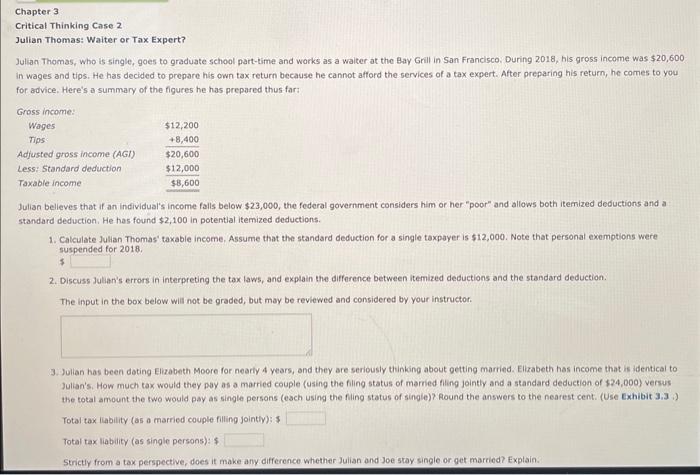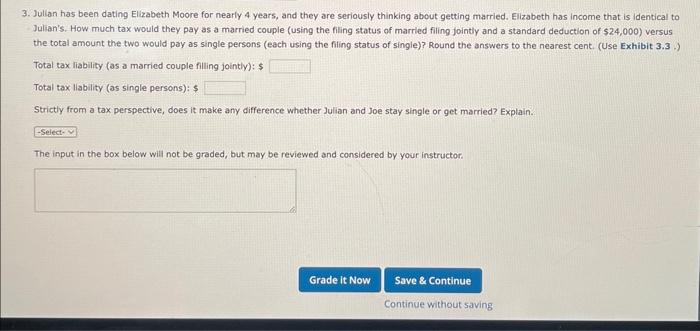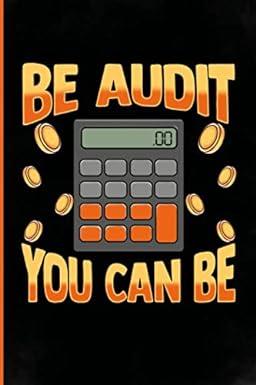Chapter 3 Critical Thinking Case 2 Julian Thomas: Waiter or Tax Expert? Julian Thomas, who is single, goes to graduate school part-time and works as a waiter at the Bay Grill in San Francisco. During 2018 , his gross income was $20,600 in wages and tips. He has decided to prepare his own tax return because he cannot afford the services of a tax expert. After preparing his return, he comes to you for advice. Here's a summary of the figures he has prepared thus far: Julian believes that if an individual's income falls below $23,000, the federal government considers him or her "poor" and allows both itemized deductions and a standard deduction. He has found $2,100 in potential itemized deductions. 1. Calculate Julian Thomas' taxable income. Assume that the standard deduction for a single taxpayer is $12,000. Note that personat exemptions were suspended for 2018 . $ 2. Discuss Julian's errors in interpreting the tax laws, and explain the difference between itemized deductions and the standard deduction. The input in the box below will not be graded, but may be reviewed and considered by your instructor. 3. Julian has been doting Elizabeth Moore for nearly 4 years, ond they are seriously thinking about getting married. Elizabeth has income that is identical to Julian's. How much tax would they pay as a married couple (using the filing status of married filing jointiy and a standard deduction of $24,000 ) versus the total amount the two would pay as single persons (each using the fling status of single)? Round the answers to the nearest cent. (Use Exhibit 3.3 .) Total tax liability (as a married couple filling jointly): $ Total tax liability (as single persons): $ Strictly from a tax perspective, does if make any difference whether Julian and Joe stay single or get married? Explain. 3. Julian has been dating Elizabeth Moore for nearly 4 years, and they are seriously thinking about getting married. Elizabeth has income that is identical to Julian's. How much tax would they pay as a married couple (using the filing status of marrled filing jointly and a standard deduction of $24,000 ) versus the total amount the two would pay as single persons (each using the filing status of single)? Round the answers to the nearest cent. (Use Exhibit 3.3 .) Total tax liability (as a married couple filling jointly): $ Total tax liability (as single persons): $ Strictly from a tax perspective, does it make any difference whether Julian and Joe stay single or get married? Explain. The input in the box below will not be graded, but may be reviewed and considered by your instructor








